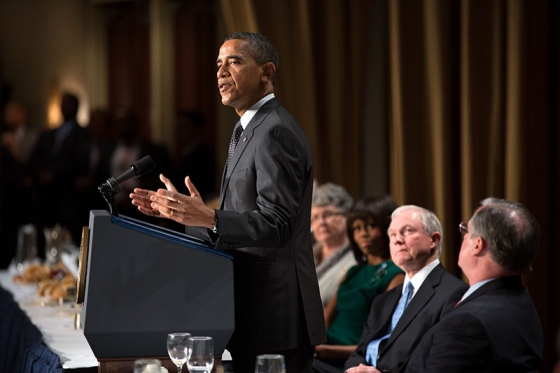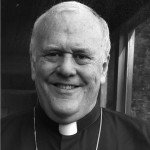GlobalView
At the National Prayer Breakfast last week, US President Barak Obama chided people not to feel any sense of moral superiority over the Islamic State barbarism saying:
“[L]est we get on our high horse and think this is unique to some other place, remember that during the Crusades and the Inquisition, people committed terrible deeds in the name of Christ,” He went on to say, “In our home country, slavery and Jim Crow all too often was justified in the name of Christ.”
He was trying to make the point that American [Christians] should not feel superior to ISIS because our ancestors did bad things, too. There is a constant theme with this president of “moral equivalency,” much like the way that the liberals in the Church try to claim moral equivalence between “border crossing” and the promulgation of heresy.
While that comparison is certainly lacking, there is, in fact, a valid point to be made about the sins of those generations that have gone before us as well as confessing our own sins. The principle is called “Identificational Repentance.” It is the confessing of the sins of our forefathers. There are many examples of that in Scripture. Look at the way that Daniel prayed:
O Lord, hear! O Lord, forgive! O Lord, listen and act! Do not delay for Your own sake, my God, for Your city and Your people are called by Your name.”
Now while I was speaking, praying, and confessing my sin and the sin of my people Israel, and presenting my supplication before the LORD my God for the holy mountain of my God… Daniel 9:19-20
Here is a similar prayer from Nehemiah:
And I said: “I pray, LORD God of heaven, O great and awesome God, You who keep Your covenant and mercy with those who love You and observe Your commandments, please let Your ear be attentive and Your eyes open, that You may hear the prayer of Your servant which I pray before You now, day and night, for the children of Israel Your servants, and confess the sins of the children of Israel which we have sinned against You. Both my father’s house and I have sinned… Nehemiah 1:5-6
Both Daniel and Nehemiah realized that both they and their people had sinned and they confessed those sins to God seeking forgiveness. The weight of our ancestors’ sins can hang on us like so many spiritual albatrosses around our necks. It is good and right to confess sins of our forefathers as well as our own. Doing so can bring about an atmosphere in which more healing and reconciliation is possible. Choosing a path of humility can open the way for reconciliation with those who “have ears to hear.”
I don’t think, however that President Obama was seeking to rally American Christians to pray in identificational repentance. It is far more likely that he is trying to humanize the actions of the Islamic State terrorists by sort of saying, “There but for the grace of God go I,” (or at least “go you.” I don’t see that he sees himself as being in the place to repent for anything.)
It would be good for Christians to pray for forgiveness for the sins of our Fathers, and for the things that we have done that are not in accordance with God’s plan and will as revealed in Scripture. While that is valuable and important, it is not enough in itself to address the sins from a millennium ago. We also need to look for ways that we have contributed to tensions in our own time. As important as that is, however, I do not believe it will be enough.
Sadly, significant portions of Islam have festered to the point that their world view and actions are petrified in the context of violent measures from 700 AD. The “convert or die” mantra is set in stone for far too many Muslims. In the case of the Islamic State, their penchant for violence is so acute that even the gentle Pontif, Pope Francis, has said that military force needs to be used until their capacity to do violence is removed.
How is it then that we engage Islam? First of all, we have to raise up a cadre of people who are conversant in Islam. I have just finished reading the Qur’an and I can tell you that it is a document that needs a great deal of study in order to talk about it intelligently. We also need a group of experts who are trained in engaging conversation with those from other faiths. The conversations that I have had that have born fruit have centered around powerful truths of the Gospel that reveal the Love of the Father for people, and the way that sins can be forgiven. Add to this the power of the Holy Spirit and the way that He reveals Jesus in dreams and visions, and there is a pretty compelling message. That is why so many people are becoming followers of Jesus Christ.
While military action may quell the spread of wholesale violence, what is really needed is an outpouring of evangelistic fervor, gracefully presented in the context of loving and transforming acts of grace.
What is utterly inadequate however, is trying to shame people into silence about the atrocities of ISIS because no one should cast stones. Failing to denounce depravity is complicity with it. It is not a sufficient response just to decry what is wrong. We have a holy responsibility to declare what is right.
The Rt. Rev. Bill Atwood is Bishop of the ACNA International Diocese and an American Anglican Council contributing author.



